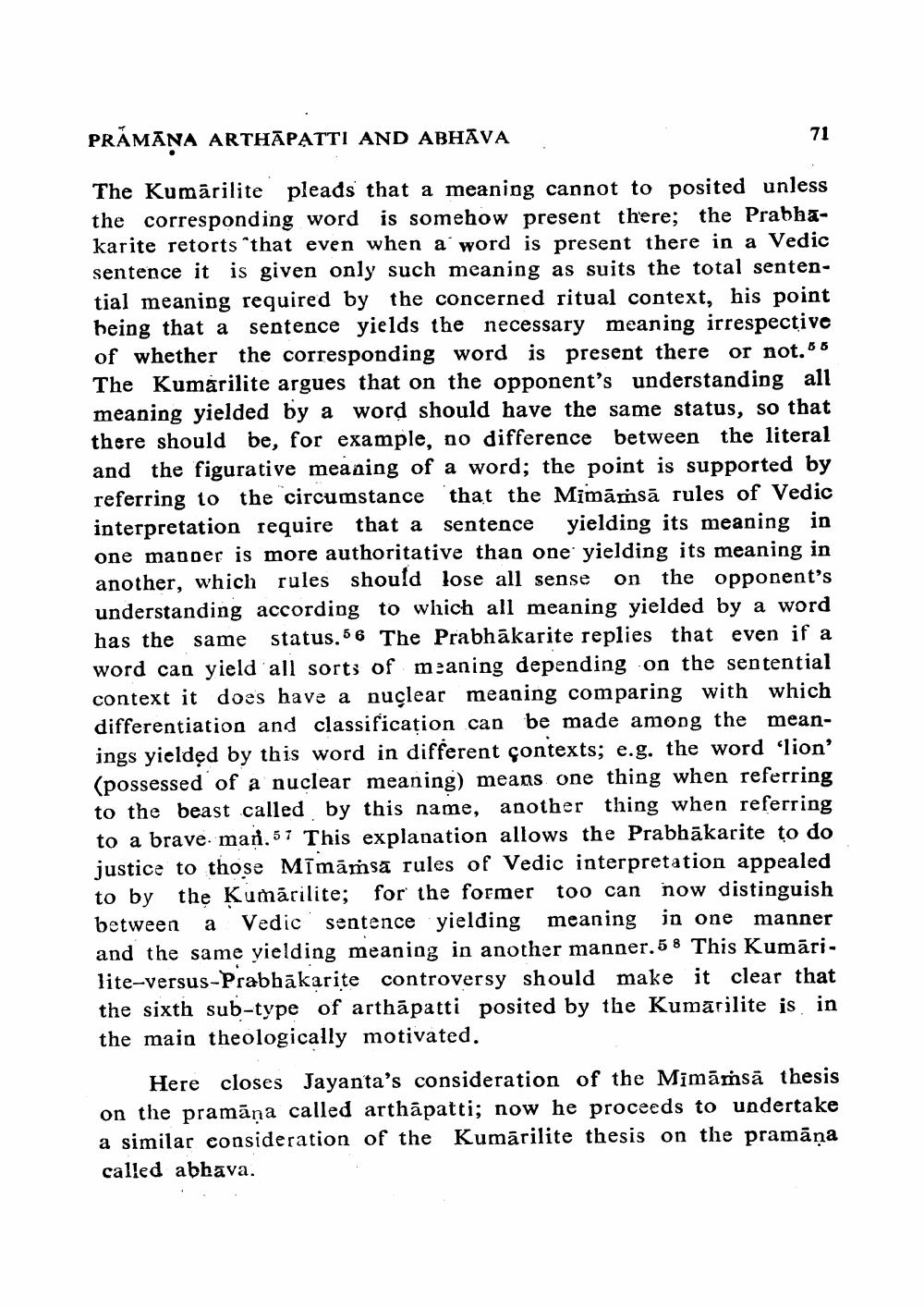________________
PRÁMĀNA ARTHĀPATTI AND ABHĀVA
The Kumārilite pleads that a meaning cannot to posited unless the corresponding word is somehow present there; the Prabhakarite retorts that even when a word is present there in a Vedic sentence it is given only such meaning as suits the total sentential meaning required by the concerned ritual context, his point being that a sentence yields the necessary meaning irrespective of whether the corresponding word is present there or not. 56 The Kumarilite argues that on the opponent's understanding all meaning yielded by a word should have the same status, so that there should be, for example, no difference between the literal and the figurative meaning of a word; the point is supported by referring to the circumstance that the Mimāṁsā rules of Vedic interpretation require that a sentence yielding its meaning in one manner is more authoritative than one yielding its meaning in another, which rules should lose all sense on the opponent's understanding according to which all meaning yielded by a word has the same status. 56 The Prabhākarite replies that even if a word can yield all sorts of meaning depending on the sentential context it does have a nuclear meaning comparing with which differentiation and classification can be made among the meanings yielded by this word in different contexts; e.g. the word “lion' (possessed of a nuclear meaning) means one thing when referring to the beast called by this name, another thing when referring to a brave. man.57 This explanation allows the Prabhākarite to do justice to those Mimāṁsa rules of Vedic interpretation appealed to by the Kumárilite; for the former too can now distinguish between a Vedic sentence yielding meaning in one manner and the same yielding meaning in another manner.58 This Kumāri. lite-versus-Prabhākarite controversy should make it clear that the sixth sub-type of arthāpatti posited by the Kumārilite is in the main theologically motivated.
Here closes Jayanta's consideration of the Mimāṁsā thesis on the pramāna called arthāpatti; now he proceeds to undertake a similar consideration of the Kumārilite thesis on the pramāna called abhava.




